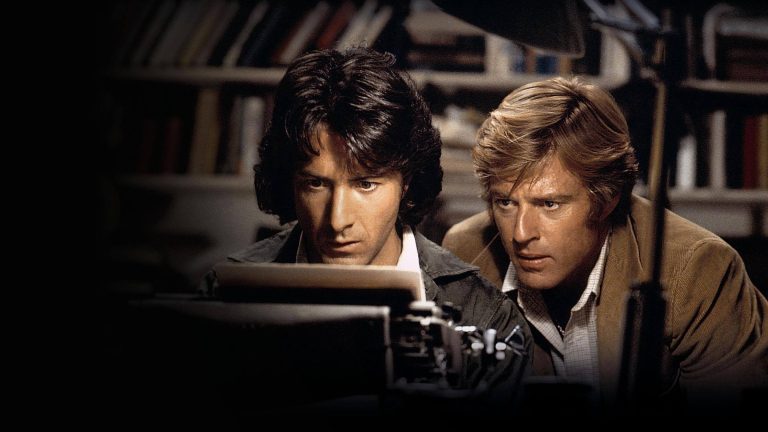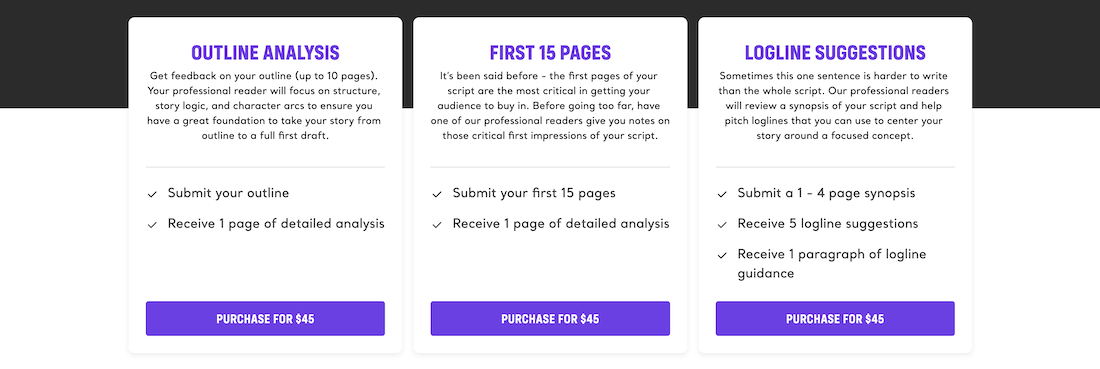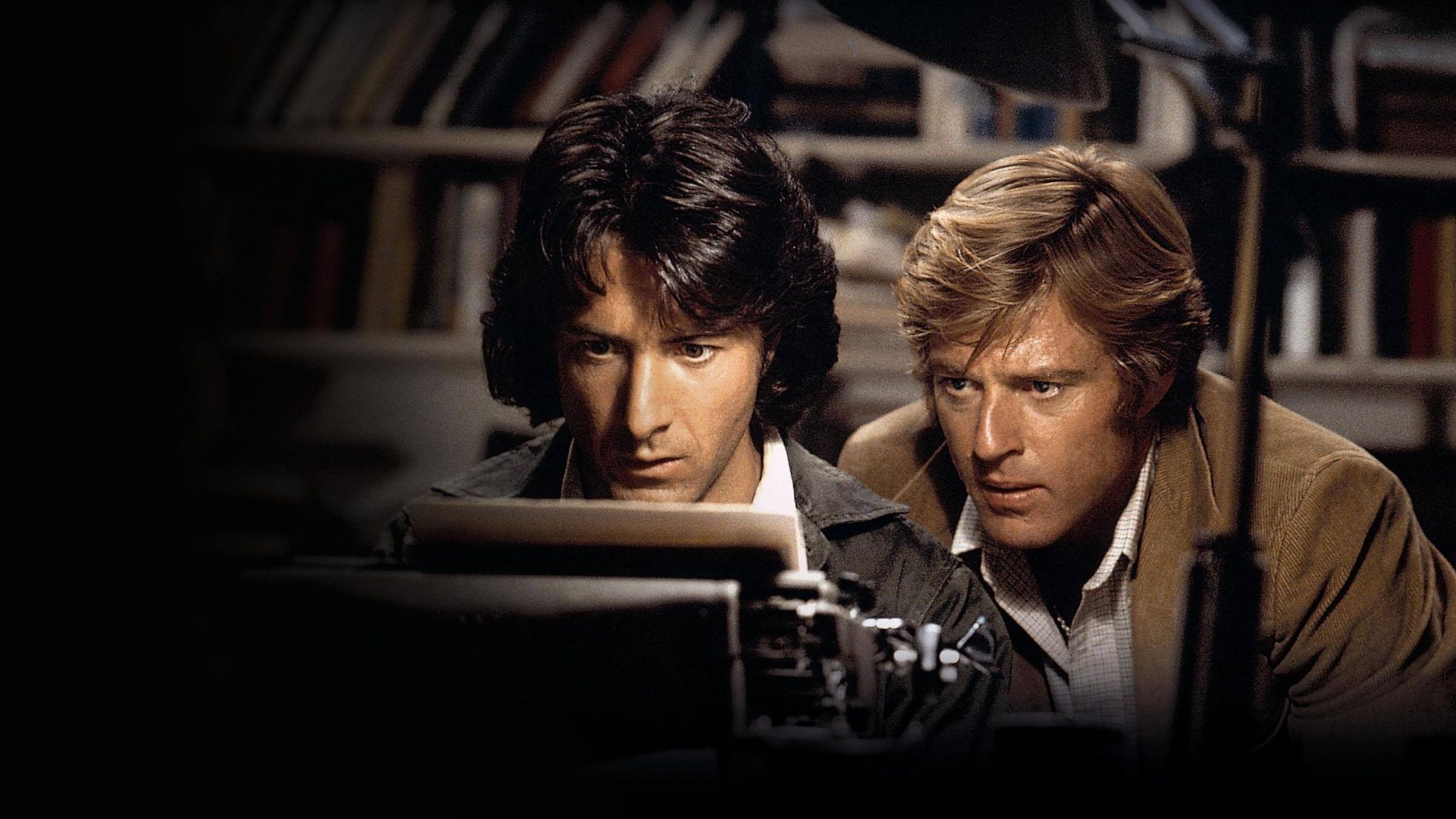5 Steps To Getting Yourself Hired for Pro Screenwriting Assignments

Despite what many unestablished and novice screenwriters believe, consistent earnings for professional screenwriters do not come from selling spec scripts (scripts written under speculation that they will be sold and produced to studios and production companies). Writing assignments are the bread and butter of every working screenwriter.
Every development executive and producer in Hollywood needs screenwriters to write the many concepts that they have in development. And most of them don't want to pay an established and acclaimed screenwriter that can demand upwards of six to seven-figure contracts.
That's where undiscovered screenwriters come into play—those who can work on the cheap compared to their more successful peers.
Here, we offer five simple steps unestablished screenwriters can take to get hired for those coveted feature assignments.
5 Steps to Getting Yourself Hired for Pro Screenwriting Assignments
1. Train Yourself to Write Under Professional Deadlines
Professional screenwriters working on assignments don't have the luxury of taking multiple months to finish a single script draft.
The standard WGA contract for a feature screenwriting assignment will generally stipulate that the writer will have just ten to twelve weeks to finish the first draft of a script.
However, a majority of screenwriting assignments throughout the various film and television platforms are non-union contracts, meaning that the production companies producing the eventual projects are non-signatory companies that do not need to adhere to WGA contract schedules and minimums. When you work with non-WGA production companies, the deadline frame is drastically reduced to an average of four weeks (sometimes less) for a single first draft.
Entry-level assignments are usually found on the following platforms:
- Lifetime MOWs (Romantic Comedy, Thriller, or Ripped From the Headlines Movies of the Week)
- Hallmark MOWs (Romantic Comedy and Holiday Dramedy Movies of the Week)
- SyFy Channel Origin Movies
- VOD and Direct-To-DVD/Blu-Ray Genre Movies (Action Thrillers, Horror, Science Fiction)
The production companies that develop content for these platforms are very prolific from a production standpoint, producing many more annual films than all major studios combined. Because of this, they need screenwriters who can develop a concept and write it fast. This is why four weeks (or less) is the general time allotted for a first draft, followed by two weeks per additional draft after notes are given.
It would be best if you were ready to write under those deadlines. And it does you no good to wait until you are in that situation with the thought of trial-by-fire process adaptation. If you burn out or can't deliver by that strict deadline, you've burned a bridge that could have led to multiple assignments — not to mention the fact that referrals and resumes are a big part of the selection process of assigning screenwriters to an assignment.
So it's time to adopt a new streamlined process right now.
Read More: The 10-Day Screenplay Solution: Learn How to Write Lightning Fast
2. Have a Stack of Genre Spec Scripts for Writing Samples
Screenwriters need to stop looking at their spec scripts as lottery tickets, hoping to sell them for big fortunes to start their careers. That's not how the industry works anymore. Sure, there are anomalies. But pro assignments are what drive a screenwriter's career.
Spec scripts are the keys to opening writing assignment doors of opportunity. They act as the calling cards to your skillset as a screenwriter. So you have to choose wisely when selecting each spec script you write.
Having quirky dramedies or basic dramatic scripts aren't ideal writing samples to showcase. You'd have to succeed in getting them produced through the indie market to get noticed. And that is a whole different ballgame.
Because most writing assignments are specific genre-based (romantic comedy for Hallmark and Lifetime, suspense thrillers for Lifetime, action thrillers/horror/science fiction for VOD/Direct-To-Streaming/DVD/Blu-Ray), you need to have samples within those genre arenas.
When you can showcase some skills within those niche genres, paid writing assignments can often come about in the right situations:
- If your action thriller samples show that you can write fantastic action set pieces, development executives and producers may be in need of that for their latest projects that they have in development.
- If your romantic comedy samples show that you can handle romance, meet-cutes, and witty banter through dialogue, you may be a perfect fit for wholesome Hallmark MOWs.
- If your science fiction and horror samples show that you can deliver compelling genre concepts and sequences that can be shot on a low budget, you can possibly become a prolific screenwriter in those genres.
In short, you need to have samples that match the genres being produced by those you approach in your networking and marketing plans:
- Figure out where your genre strengths are
- Have a stack of 3-5 excellent samples in that genre
- Approach those production companies that are prolific in those genres
3. Do Your Research
Don't make the mistake of marketing to flashy big-name studios, production companies, and producers. You're not going to get the big names to look at your projects, and you're not going to be considered for those major screenwriting assignments. The bigger companies will be too busy collaborating with already established and successful writers.
But don't worry. A little research will help you find the smaller production companies and producers making more movies than those big-name figures. And those smaller companies and producers are easier to contact than the big dogs within the industry.
You can find these companies in a couple of different ways:
- As you scroll or page through various streaming platforms and VOD lists of genre movies produced outside the studio system with lower-profile casting, you can jump onto IMDbPro, search their titles, and find out which companies produced them.
- When you watch a non-studio genre flick, pay specific attention to the opening titles. Before the opening credits even roll, you'll see logos for various companies appear. Look them up on IMdBPro and, again, find out which companies produced them.
These are the entry-level companies that you can query. They're more accessible. And you'll be able to find more direct email addresses via IMDbPro.
4. Compile a Query List Matched with Proper Samples
After you've done your research, you need to begin your plan of approach—and that starts with a little organization.
- Create a Spreadsheet
- Have Company Names, Contact Names, and Email Addresses Listed
- Note the Genre Each Company Produces
- Have Spec Script Samples for Each of Those Companies You Intend to Approach
5. Create Your Query Email Message
We've written about the best practices of writing and sending query letters before. However, you need to adjust the content of your cold-querries because you are focusing solely on writing assignments.
This can also be a way to pitch your genre spec scripts in subtle fashion.
You still want to observe some of the most important directives showcased in our query letter post:
- No snail mail—only email correspondence is recommended
- Send queries to the right people
- Address queries to individual development executives or producers (as opposed to writing To Whom It May Concern)
- Be informal, but not too informal
- Don't waste space by telling jokes
- Get to the point
- Be confident, not arrogant
You will focus on being considered for assignments, which will make the content slightly different.
There are generally two ways you can go about this approach.
Note: Never attach scripts or any other attachments to your query email; we won’t open them.
Read More: Writing the Perfect Query Letter for Your Scripts

'Sorry to Bother You' (2018)
1. Pitching Your Genre Spec Script for Acquisition AND as a Writing Sample
Here is a simple format you can work from:
Hi Steven,
Hope the week is going well. I’ve got a pulse-pounding suspense thriller called Jaws that I think would be great for Amblin.
When a great white shark begins to menace the small island community of Amity, a police chief, marine scientist, and grizzled fisherman set out to stop it.
It’s The Thing From Another World meets Moby Dick.
Would love to have you take a look. I would also love to be considered for any writing assignments you may have in the works. I'm a great collaborator, work well under tight deadlines, and love the genre your company excels at.
Best,
Johnny Screenwriter
That's all you need. It's informal yet still professional, straight to the point, showcases confidence without ego, and both pitches the sample for acquisition consideration while also pitching yourself (with the script as a sample) for possible writing assignments.
2. Pitching Yourself for Writing Assignments Accompanied by Sample Loglines
Here is another simple format you can work from:
Hi Steven,
Hope the week is going well. My name is Jane Screenwriter, and I predominantly write in the suspense thriller genre. I'm a big fan of your company's work and would love to be considered for any writing assignments you may have in the works. I'm a great collaborator, work well under tight deadlines, and love the genre your company excels at.
I have a great spec sample that is a testament to my writing and voice. It's a pulse-pounding suspense thriller called Jaws.
When a great white shark begins to menace the small island community of Amity, a police chief, marine scientist, and grizzled fisherman set out to stop it.
The Thing From Another World meets Moby Dick.
Would love to have you take a look and consider me for any assignments. I have other spec samples in the genre as well.
Best,
Jane Screenwriter
Once again, it's as simple and straightforward as it should be. Focus on selling yourself as a writer for writing assignments, while subtly pitching your spec as a secondary consideration.
You can also take the opportunity to include any industry experience, accolades, accomplishments, Film/TV credits, and connections you may have to the person you are querying.
That being said, you should focus solely on major accomplishments and credits:
- Wins (not placements) for more esteemed fellowships like the Nicholl Fellowships and Sundance
- Produced and distributed feature movie credits and TV series credits (as opposed to short films, student projects, etc.)
Here's another example with all of those elements in mind:
Hi Steven,
Hope the week is going well. My name is Jane Screenwriter. I’m a former studio reader for Sony and used to work under John Calley, whom I'm sure you remember. Your driver George and I are old high school friends. He recommended I contact you.
I predominantly write in the suspense thriller genre. I'm a big fan of your company's work and would love to be considered for any writing assignments you may have in the works. I'm a great collaborator, work well under tight deadlines, and love the genre your company excels at.
I have a great spec sample that is a testament to my writing and voice. It's a pulse-pounding suspense thriller called Jaws.
When a great white shark begins to menace the small island community of Amity, a police chief, marine scientist, and grizzled fisherman set out to stop it.
The Thing From Another World meets Moby Dick.
Would love to have you take a look and consider me for any assignments. I have other spec samples in the genre as well.
Best,
Jane Screenwriter
Other Tips to Nabbing Pro Screenwriting Assignments
- Agents and managers can help you secure coveted writing assignments. However, don't think that you can't do this on your own. You can.
- Most writing assignments come from referrals. But this doesn't always have to mean agents and managers. Referrals can come from contacts you've made along the way.
- Don't continue to hound those you've approached. If they respond, great. If they don't, move on.
- Don't wait by your email inbox. Send the query and then move on down the list to send to others. Throw the darts and see what hits.
- Don't be conned into doing work for free. Read this for more on that.
Good luck!
Read More: 5 Things to Expect During Paid Screenwriting Assignments
Check out our Preparation Notes so you start your story off on the right track!

Ken Miyamoto has worked in the film industry for nearly two decades, most notably as a studio liaison for Sony Studios and then as a script reader and story analyst for Sony Pictures.
He has many studio meetings under his belt as a produced screenwriter, meeting with the likes of Sony, Dreamworks, Universal, Disney, Warner Brothers, as well as many production and management companies. He has had a previous development deal with Lionsgate, as well as multiple writing assignments, including the produced miniseries Blackout, starring Anne Heche, Sean Patrick Flanery, Billy Zane, James Brolin, Haylie Duff, Brian Bloom, Eric La Salle, and Bruce Boxleitner, the feature thriller Hunter’s Creed, and many Lifetime thrillers. Follow Ken on Twitter @KenMovies
Tags
Get Our Screenwriting Newsletter!
Get weekly writing inspiration delivered to your inbox - including industry news, popular articles, and more!






























